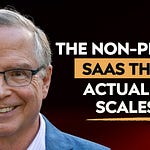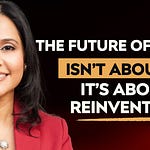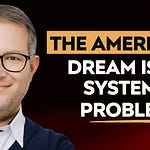What if the next unicorn is trading at $1 a share—and no one’s looking?
In this episode of the Ignite Podcast, we sit down with Steve Kann, a seasoned investor, serial entrepreneur, and author of the Amazon #1 bestseller Microcap Magic. With more than 30 years in investment banking, capital markets, and company building, Steve has raised or advised on over $1 billion in deals and developed a reputation as a sharp dot-connector who thrives in the overlooked corners of finance.
Whether you're a founder thinking about your next fundraise, an investor exploring inefficiencies, or someone curious about how capital really flows, this conversation will change how you think about money, markets, and momentum.
The Problem with Staying Private Too Long
Steve opened with a critique of today’s capital landscape: companies are staying private longer, and it's making wealth creation more exclusive. He reminded us that Amazon went public at a $250M valuation and raised just $50M. Today, private market valuations often soar into the billions before retail investors can get in—if they ever can.
“In 1996, you could invest $1,000 into Amazon and become a millionaire. Today, that door is closed for most people.” – Steve Kann
Why the Public Markets Matter—And What We’ve Lost
The episode dives deep into how regulations and capital concentration have made it harder for everyday investors to participate in early growth. Steve argues that:
The accredited investor rule is outdated and unfair
The cost and complexity of Regulation A+ offerings stifle innovation
And the wealth gap grows as IPOs get later and larger
He proposes a solution: a “driver’s license for investing”—a simple financial literacy exam allowing broader participation in early-stage deals.
The Microcap Advantage: Efficient Wins in Inefficient Markets
Steve built his career around inefficient markets—specifically, microcap stocks (under $250M market cap). In these under-the-radar corners, inefficiencies can lead to massive returns. He shared:
A stock he held at $0.50 that was acquired for $54 just a few years later
His public newsletter portfolio, which averaged 56% annual returns across 13 picks
The thesis behind his book: the more inefficiently a stock trades, the more likely it is mispriced
What Founders Get Wrong About Capital
Steve has sat on every side of the table—as an operator, investor, banker, and advisor. His biggest founder red flags?
Messy cap tables that scare off investors or buyers
Delusions about valuation and reluctance to raise when they should
Unrealistic go-to-market plans without budget or support
Unwillingness to take advice from experienced capital partners
“Don’t run out of money. That’s the number one rule—and most founders break it.” – Steve Kann
When Going Public Makes Sense (and When It Doesn’t)
Most founders think of IPOs as a final destination. Steve challenges that. He believes more companies should consider going public earlier, particularly if:
They're at $15–30M in revenue with strong growth
They need liquidity for early investors or employees
They benefit from greater transparency or acquisition currency
But he also warns: going public is expensive (think $500–750K/year in legal, audit, and IR), and founders need to be ready to sell two products: their solution, and their stock.
The Power of Strategic Capital
At Ocean Street Partners, Steve focuses on deals where he and his partner can add more than just capital. This means:
Helping founders clean up governance and cap tables
Connecting them to ideal investors, partners, and customers
Using decades of experience to avoid common capital markets traps
He shared how one startup received not just funding, but also their entire board, dev team, customers, and distribution strategy through Steve’s introductions.
Focus on Relationships, Not Transactions
Steve’s guiding philosophy? “Relationships first. Transactions follow.”
From CRMs and handwritten notes to LinkedIn updates and genuine curiosity, he’s built a global network of 23,000+ contacts—and he remembers where he met each one.
“The real superpower is that I actually care. The rest is just good systems.”
Rapid Fire Lessons
Book recommendation: How to Win Friends and Influence People
Favorite missed stock? Microsoft at $16 in 1987
Most undervalued asset today? Microcaps—still
Best founder exit? Not always IPO. Often, it’s a smart strategic acquisition.
Final Takeaway
Steve Kann’s advice isn’t just for investors—it’s for any founder navigating the modern fundraising maze. His mix of capital discipline, market insight, and relationship-first execution is a masterclass in how to survive and scale in today's increasingly complex financial world.
👂🎧 Watch, listen, and follow on your favorite platform: https://tr.ee/S2ayrbx_fL
🙏 Join the conversation on your favorite social network: https://linktr.ee/theignitepodcast
Chapters:
00:00 Intro
01:15 Steve’s First “Illegal” Business and Early Sales Lessons
03:30 Breaking Into Capital Markets in the 80s Bull Market
04:45 Why Companies Staying Private Longer Hurts Everyone
07:00 The Flaws of Accredited Investor Laws & What Needs to Change
09:30 A $0.50 Stock That Became a $54 Exit
14:30 How Microcap Magic Came to Life After Newsletter Success
18:00 How Steve Picks Microcaps (and Why It’s Like VC)
21:00 TAM Blind Spots and What Founders Miss
23:30 Evaluating Founders: Coachability, Plans, and Pitfalls
27:00 Cap Table Nightmares and What to Watch Out For
30:00 “One-Call Steve” and the Art of Dot-Connecting
33:30 Steve’s CRM, Note-Taking Strategy & Network Building
37:00 Why He Moved Away from Early-Stage Investing
39:30 When Founders Should Call Steve (Hint: Not Just at IPO)
42:00 Going Public Early: Risks, Benefits, and Misconceptions
48:00 The Real Costs of Being Public (And When It’s Worth It)
52:00 Public vs Private Valuations: What Founders Get Wrong
53:30 Launch Velocity: Marketing Your Stock Like a Product
55:30 How to Choose the Right Capital Markets Advisor
57:00 The #1 Rule in Startup Finance: Don’t Run Out of Money
59:00 Rapid Fire: Biggest Wins, Books, Deals & Kristen Wiig










